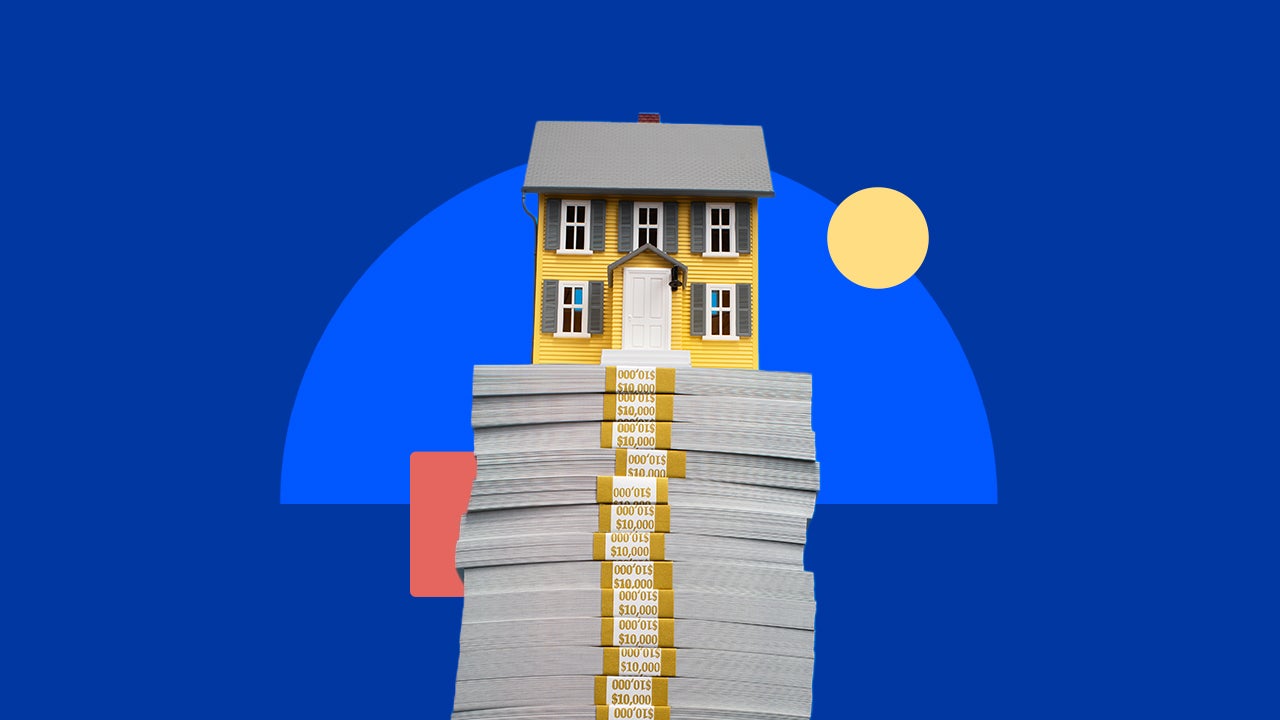How to improve your credit score for a mortgage

Key takeaways
- The minimum credit score required for a conventional loan is 620, while other types of mortgages require scores between 500 and 700.
- A higher credit score usually translates to a lower interest rate.
- Paying bills on time, keeping credit card balances low and becoming an authorized user on another’s account can improve your credit score.
Your credit score is one of the primary factors mortgage lenders consider when you apply for a loan. If your score needs work, there are steps you can take to improve it before you apply. Here’s everything you need to know about how to improve your credit score before you buy a house.
Mortgage credit score requirements
These are the minimum credit scores needed to qualify for different types of mortgages.
| Type of Loan | Minimum Credit Score |
|---|---|
| Conventional | 620 |
| Jumbo | 700 |
| FHA | 580 (or 500 with 10 percent down) |
| VA | 620 (VA doesn’t require a minimum credit score, but lenders do) |
| USDA | 640 |
While it’s crucial to meet the minimum requirements, it’s best to have the highest credit score possible before you apply for a mortgage. In fact, the average credit score for a borrower getting a purchase loan is 737, according to April 2025 data from mortgage technology provider Optimal Blue.
How to improve your credit score before getting a mortgage
- Check your credit reports and scores
- Pay all your bills on time
- Reduce your credit card balances
- Ask for a credit limit increase
- Avoid opening new accounts
- Get help from a responsible credit user
- Consider credit counseling
1. Check your credit reports and scores
Get a copy of your credit report from each major credit bureau — Equifax, Experian and TransUnion — through AnnualCreditReport.com. These reports supply the information that’s used to create your credit scores. Make sure there are no mistakes, especially regarding late payments or closed accounts. If there is an error, contact the bureau to dispute it as soon as possible.
2. Pay all your bills on time
One of the most important ways to improve your credit is to keep all your accounts in good standing. Missing a payment can lower your credit score, and late payments can stay on your report for up to seven years. If you’re currently late on a payment but still within the grace period, contact the creditor right away to address the situation. If you do have a late payment on your record, strive to make payments on time moving forward.
3. Reduce your credit card balances
Your credit utilization ratio is the amount you owe compared to your total available credit, and it accounts for 30 percent of your score. The lower the ratio, the better. As a rule of thumb, if your utilization is more than 30 percent, try to pay down those balances until you’re under that threshold.
4. Ask for a credit limit increase
On the flip side, if you typically pay off your balances each month, but find that you’re often close to maxing out your cards, ask your providers for credit limit increases. Assuming your spending stays at the same level, this will also decrease your credit utilization ratio.
5. Avoid opening new accounts
When you apply for new credit, the lender will typically conduct a credit check which temporarily lowers your score. Because of this, try to avoid opening new credit card accounts or taking out more loans before you apply for a mortgage, as well as during the application and mortgage underwriting processes. By the same token, don’t close any old accounts, either — this can raise your utilization ratio and have a negative effect on your score.
6. Get help from a responsible credit user
If you’re a younger first-time buyer, you might not have a very long credit history. One way to improve your credit to buy a house: Become an authorized user on a parent’s or relative’s credit card. The primary cardholder will continue to make the payments, and you’ll benefit from the positive payment history.
7. Consider credit counseling
If you could use some help managing your debt, consider working with a certified credit counselor. A counselor can help you set up a budget and make a plan to lower your balances, which may include negotiating with your creditors to reduce your interest rates and monthly payments. In general, you’ll want to work with a credit counselor associated with a nonprofit, not a representative from a for-profit debt relief agency.
What factors determine your FICO credit score?
There are several categories of your credit history that inform your current score, and some affect your score more than others. According to Equifax, one of the major credit bureaus, your FICO score is determined using a formula that looks roughly like this:
- On-time payment history: 35 percent
- Amount of debt: 30 percent
- Length of total credit history: 15 percent
- Number of new accounts: 10 percent
- Type of credit utilized: 10 percent
Credit bureaus tend to assign “good debt” and “bad debt” labels to your current debt. Home loans and other debt that can increase your net worth in the long term are considered good. Credit card debt and other revolving accounts that aren’t related to a valuable asset are more likely to decrease your FICO score.
Why is a higher credit score beneficial when applying for a mortgage?
The higher your credit score, the better chance you’ll have of being approved for a mortgage and the better your mortgage rate is likely to be. This is because lenders want to ensure you’ll repay the owed amount, and your credit score helps them determine how reliably you’ve repaid credit balances in the past.
Even a small difference in your mortgage rate affects your monthly payment and overall loan cost. For example, using Bankrate’s mortgage calculator, let’s say you buy a $300,000 house with a 6.875 percent fixed rate and put 3 percent down. Your monthly payment would be about $2,176. If you had a 7 percent fixed rate, your monthly payment would be $2,200. While the difference looks small at first, over the course of a 30-year mortgage, you’d save over $8,000 with the lower rate.
Next steps in the mortgage process
Improving your credit and saving for a down payment are two of the biggest steps in getting ready to buy a home. Next, you’ll need to:
- Organize your financial documentation. Your lender will want evidence of your assets and obligations, including pay stubs, tax returns and statements from bank and other financial accounts for you and any co-borrowers.
- Shop around for a loan. Apply for preapproval with at least three lenders in order to get the best rate and terms possible on your mortgage.
- Have an offer accepted on a house. Once you’ve found a house you like and had an offer accepted, you can choose a lender and go through the process of officially applying for a mortgage.
- Go through the underwriting process. After your lender receives your application, it will evaluate all of your financial information in order to decide whether to give your loan final approval.
- Close on the home. If your application is accepted, you’ll sign the final paperwork to take ownership of the property and pay closing costs.
To get the full details on the mortgage process, read our guide on how to get a mortgage.
FAQ
-
If you want to improve your credit score fast, pay down your current debt and avoid opening new accounts. If you can increase your credit limits on card accounts, that can help within a month or so, too — it improves the credit utilization ratio from the opposite end. Keep in mind that, while items like a missed payment or bankruptcy will stay on your credit report for up to seven years, the impact decreases after a few years.
-
It’s still possible to get a mortgage with bad credit. However, if you have a lower score, you may have to pay more fees or receive less favorable terms. For instance, you may be able to get an FHA loan with a credit score as low as 500, but you’ll need to put 10 percent down. If you can get your score up to 580, you can get an FHA mortgage with 3.5 percent down. Know also that some lenders have stricter requirements, so it’s smart to compare lenders who specialize in low-credit-score mortgages.
-
Having a larger down payment and a lower amount of debt can both be beneficial when applying for a mortgage. If it’s not possible for you to tackle both goals, consider devoting any extra money toward your debt payments and looking into down payment assistance programs. Some conventional loans allow down payments of as little as 3 percent, and you may qualify for grants or low-cost loans to reduce that expense.
Why we ask for feedback Your feedback helps us improve our content and services. It takes less than a minute to complete.
Your responses are anonymous and will only be used for improving our website.







